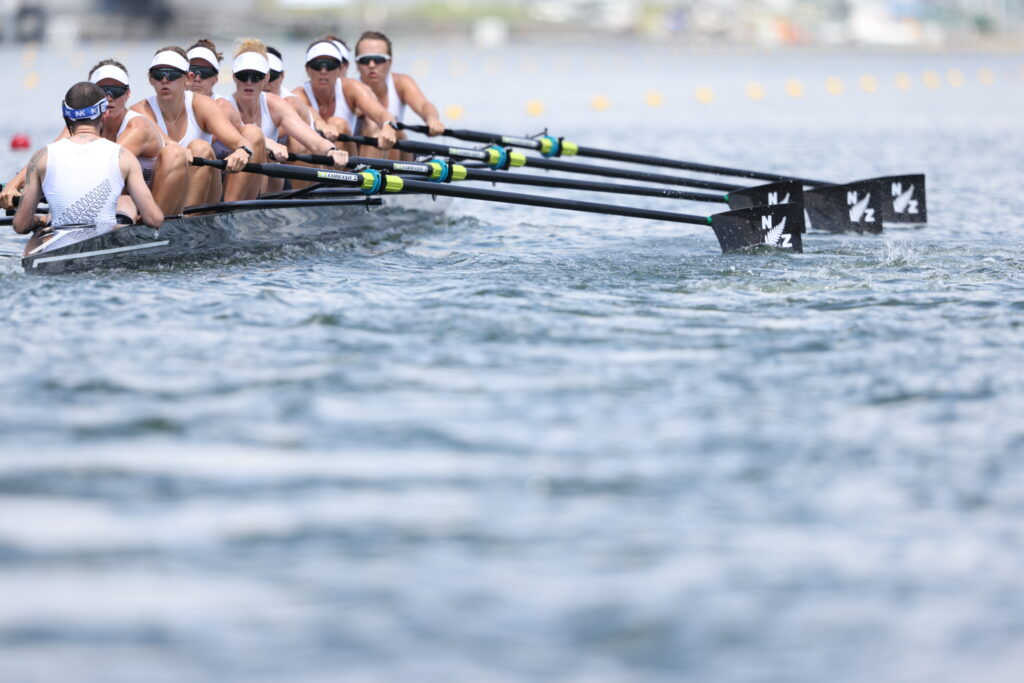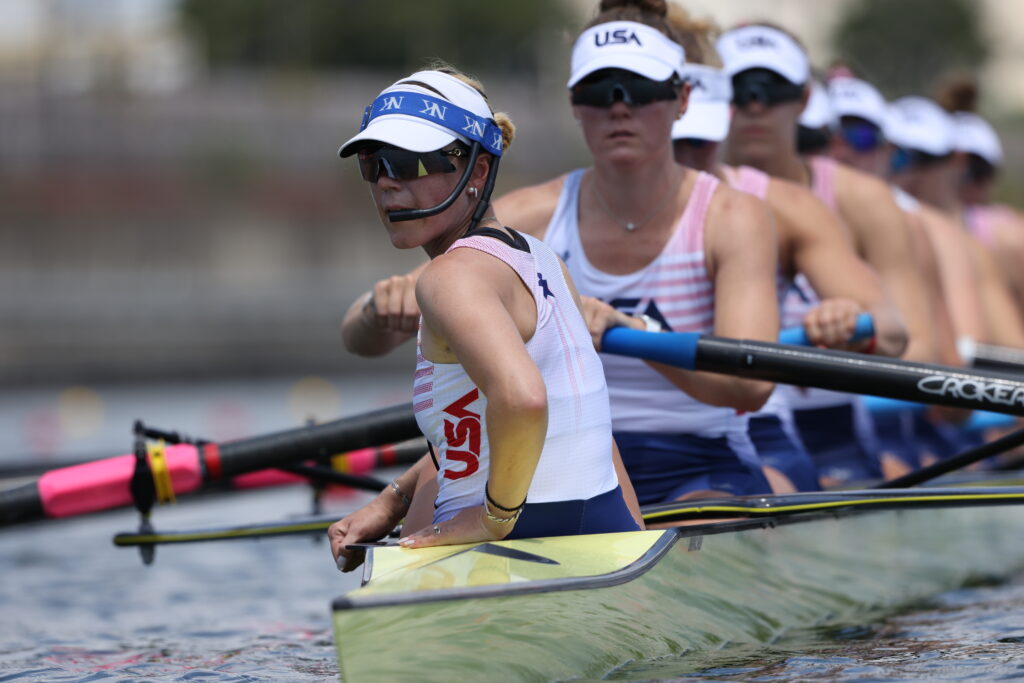
25 Jul 2021
Quotes from Sea Forest Waterway on day two of racing
Day two of racing at the Tokyo Olympic Games means all rowers can officially call themselves Olympians. The racing has been fast and furious, the temperatures hot and incoming adverse weather has meant a change in schedule. Here are some reactions from athletes after the second day.
The first race
The most important aspect for all the athletes here is the racing. Winning the first race can give a confidence boost.
“Winning is always a good way to start things off so you can’t complain too much with that. The other rounds tend to be the more important ones, so if we’re still winning by then we’ll be pleased,” says Paul O’Donovan, lightweight men’s double sculls, Ireland.
And knowing that things go to plan is also an advantage.
“There’s always stuff that you can improve, but I think we’re pretty happy with this race. We did pretty much everything we wanted to do, concentrating on the third 500 and making a push there. It worked out well today so we are very happy with how the race went in the end,” says Jonathan Rommelmann, lightweight men’s double sculls, Germany.
But for some, the first race is already a big challenge. The Kiwi women’s eight had a tough fight with the Canadians.
“We came prepared for a really tough battle. I think that heat race was so – it’s the Olympic Games, everyone came to race and go as fast as they can. We just had to stay calm and really move when we needed to towards the end,” says Caleb Shepherd, women’s eight, New Zealand.

And the German men’s eight faced a huge amount of pressure from the United States.
“The second half of the race was pretty good from us. The Americans were pushing very hard at the beginning, then we were better in the race, every stroke for stroke. Our cox, Martin Sauer, said that the last 600 metres we had to push harder and this was I think the breaking point. It was a really, really tough race and we are happy to beat the Americans,” says Richard Schmidt, men’s eight, Germany.
Controlling the nerves
This is the Olympic Games and while athletes are accustomed to nerves before racing, this level of competition brings with it a new level of stress.
“It’s hard to ignore when you see Olympic rings at the start line. So just before I was trying to stay as cool and calm as possible. Then when the time came, just using that little bit of extra energy or adrenaline to our advantage,” Daniel Miklasevich, men’s eight, United States.
And the particular conditions in Tokyo might make it, surprisingly, slightly easier.
“I remember in the warm-up lane thinking this is just a race, really, and we’ve done that since we were 14. It probably helps that there are no spectators, because it’s literally just a race, and everyone we are competing against is just a bloke, and we’ve done them in all season,” Matthew Rossiter, men’s four, Great Britain.
Becoming an Olympian
Having competed means that all rowers can now officially call themselves Olympians, and for many of them, for the first time.
“It’s our first Olympics and you go out there and suddenly the thought goes through your head that ‘this is the Olympics, don’t screw it up’. And all this, what if this happens? It’s good to put that to bed, we’ve done that, we’re now Olympians. This is where we are, this is where we race, we belong here,” Oliver Cook, men’s four, Great Britain.
Dealing with changes
This event, perhaps in particular, brings with it many different factors. Athletes have to be prepared for changes, like the change in racing schedule due to adverse weather conditions.
“That’s easy for us. We’ve practised in pretty unpredictable times. Where we row there’s current and wind, so we’ll change our practices to adjust all that. A day here, a day there, it’s not much for us, we’ll race whenever they tell us to and I thought we handled that very well,” Liam Corrigan, men’s eight, United States.
The men’s and women’s eights were both moved to race one day earlier.
“I think we handled it really well. We are oftentimes moving around our practice times and locations, and we’re always shuffling things around in practice. We train really hard so that we’re ready to race even on our worst day we can still go our hardest,” Katelin Guregian, women’s eight, United States.


